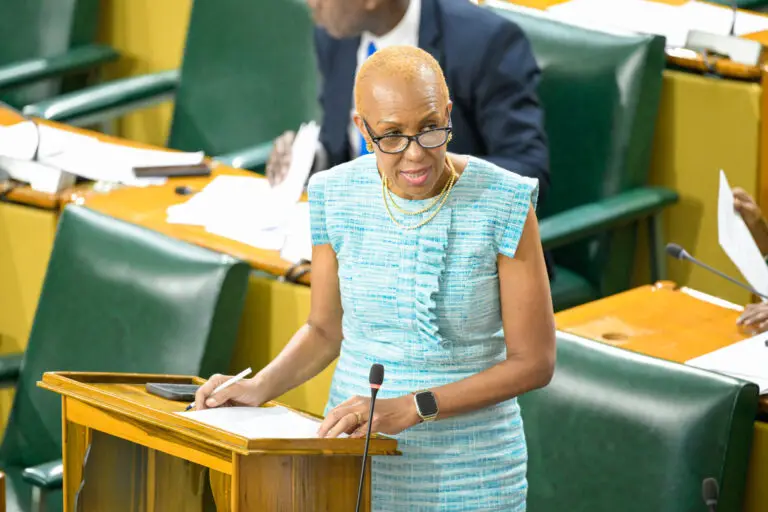KINGSTON, Jamaica – On Tuesday, January 14, the House of Representatives passed significant amendments to the Income Tax Act, marking a pivotal step in the Government’s economic strategy for the 2024/25 financial year. The amendments, which were part of the 2024/25 Budget, aim to foster greater trade, reduce bureaucratic inefficiencies, and protect citizens from global inflationary pressures.
Minister of Finance and the Public Service, Fayval Williams, highlighted that Jamaica’s robust macroeconomic fundamentals provided the Government with the capacity to implement these progressive measures. “Our economic strategy has been focused on reducing the national debt and improving fiscal conditions, giving us the flexibility to roll out initiatives that will drive productivity, promote investment in renewable energy, and protect the most vulnerable members of society,” Williams explained.
A major part of these changes is a reform in tax policy that prioritizes social equity while promoting economic expansion. The legislation includes a new personal income tax threshold, which has been raised from $1.5 million to $1.7 million. This move is designed to reduce the tax burden on middle-income Jamaicans and offer greater financial relief.
Additionally, a reverse tax credit for Jamaicans earning under $3 million has been introduced, further easing the financial strain on low-income earners. Pensioners also stand to benefit significantly, with an increase in tax exemption thresholds resulting in an additional 2,046 individuals falling outside of the tax net, allowing them to enjoy more disposable income.
The Government also increased the duty-free threshold for personal and household effects, raising it from US$500 to US$1,000, benefiting Jamaicans who are importing goods for personal use.
One of the standout features of the tax amendments is the change to the Junior Stock Exchange’s maximum voting share capital, which was raised from $500 million to $750 million. This amendment is designed to provide more opportunities for micro, small, and medium-sized enterprises (MSMEs) to thrive. By broadening the criteria, MSMEs can now access a wider range of tax incentives, including income tax relief and exemption from transfer tax and stamp duty on share transfers.
“This is a vital change for the MSME sector, which is crucial for driving innovation and entrepreneurship in Jamaica,” Williams noted. “By lifting the cap, we are allowing businesses to raise more capital and grow, while ensuring they continue to benefit from the government’s supportive tax incentives.”
In addition to the fiscal support for MSMEs, the Government is also promoting investments in renewable energy. The amendments aim to encourage companies to invest in sustainable energy solutions as part of Jamaica’s broader commitment to environmental sustainability.
The finance minister also provided an overview of the success of the Junior Stock Exchange, noting its significant growth. As of December 2024, the market capitalization of the Junior market reached $148.5 billion, and the market index has surged from 150 points in 2009 to 3,735 points today. “The Junior market has proven to be a highly successful platform for businesses to raise capital and expand, and we want to ensure that this growth continues,” Williams added.
With these changes, the Government aims to create a more equitable, efficient, and sustainable economic environment, supporting both businesses and individuals while enhancing the overall financial landscape of the nation.






